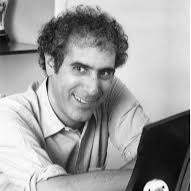Moss began writing poetry and music at an early age. His father, an actor, and his mother, who had been a writer for a time, filled their home with recordings of classical music and Broadway show tunes. The young Moss studied piano and read a great deal. During a road trip with his father at the age of eight or nine, he discovered crossword puzzles for the first time and felt as though they had been created for him. After graduating from Princeton, Moss was offered two positions with Columbia Broadcasting System (CBS) television. One was in the news department, and the other was for the children's program Captain Kangaroo. He told SATA, "I hadn't seen Captain Kangaroo, and I had seen the news, so I said, 'let me try Captain Kangaroo.'" This show, which appeared from 1955 to 1984, was the longest-running children's series in television history. Moss worked as a production assistant for less than a year before leaving to serve in the army. Six months later, he returned to the show as a writer, and stayed on for two years. He decided at that point to leave television and do some "serious" writing. When Moss began writing poetry on his own, he was not intending to publish a collection. Though he had been writing for children's television for many years, he had no children of his own at the time, and was unacquainted with contemporary literature for young people. But he was asked to write a few poems for an anthology and found he really enjoyed it. Source

